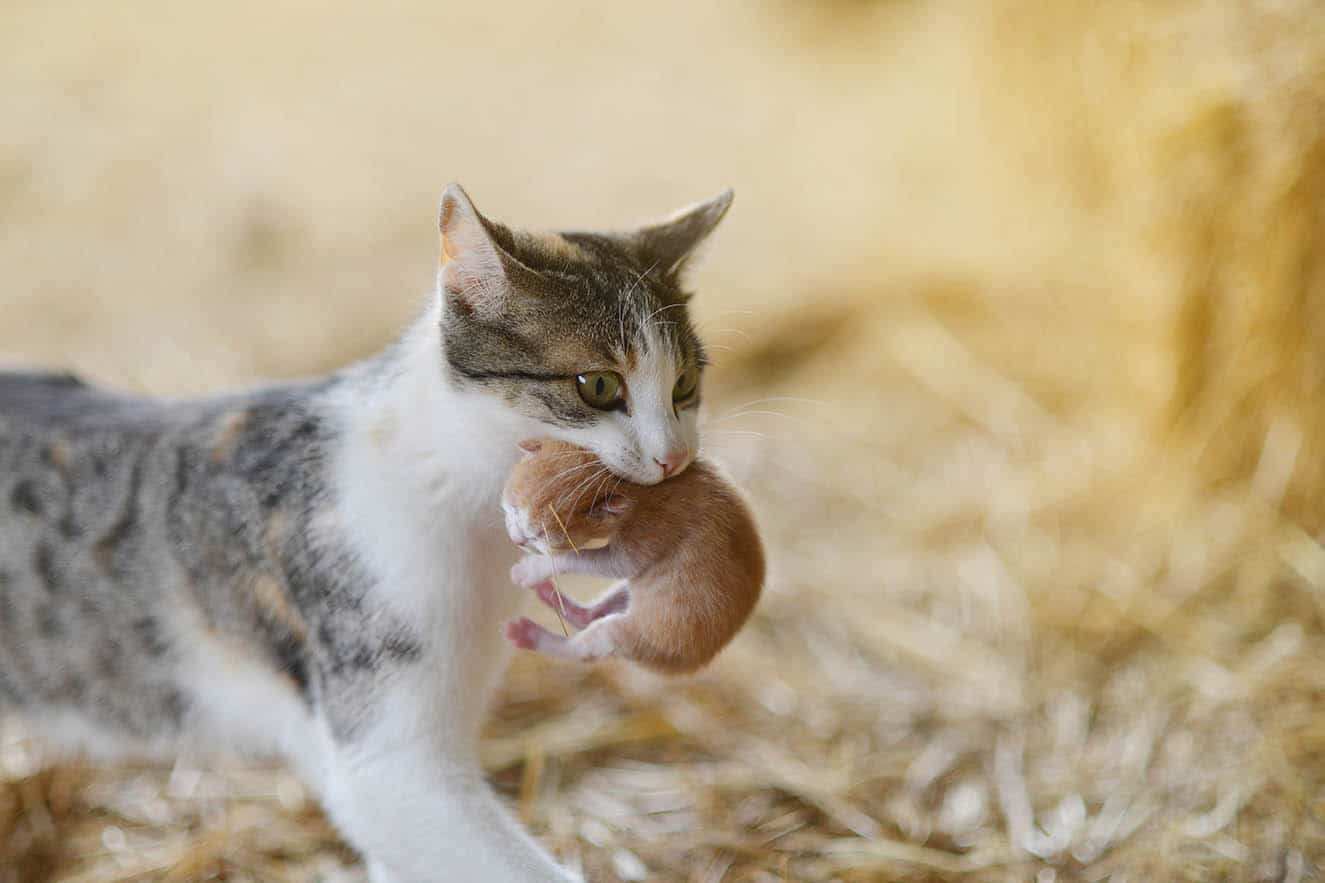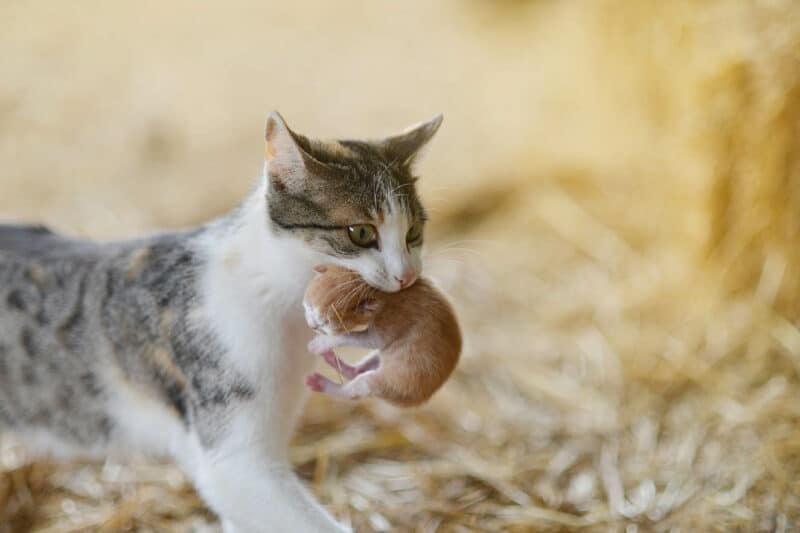If your gorgeous cat has just had kittens, it can be an exciting time for pet parents. Despite the urge to meet those kittens right away, it’s best to allow your cat some time alone with her babies for the first few days. Other than providing high-quality kitten food, water, a clean litter tray, and a quiet environment for the mother cat, most professionals recommend not socializing with kittens until they’re at least 2 weeks old.
During this time, you can keep an eye on your cat and her babies from a distance. Most of the time, mother cats will keep her kittens in the same warm and cozy nest that she built before she gave birth. She may occasionally decide to move the nest to a different location if she feels uncomfortable or stressed.
In rare cases, a mother cat may remove just one kitten from the nest, and that’s the scenario that we’re going to take a look at in closer detail. Why do mother cats move just one kitten, and when should you worry about this behavior?

The 4 Possible Reasons Why Mother Cat Move Only One Kitten
1. She Wants To Move All the Kittens to a New Location
Sometimes a mother cat will decide to move all her kittens to a new location. Maybe her current nest feels too noisy or exposed, or there are too many people coming over to look at her and her kittens when she really wants to be left alone.
In this case, a mother cat may move one kitten before returning to her nest to collect the others. You may just have caught her in the middle of her move, so keep an eye on her and see if she’s planning on moving the whole litter. Don’t interfere with this process, other than to provide more bedding, food, water, and a litter tray once your cat has settled in her new location.
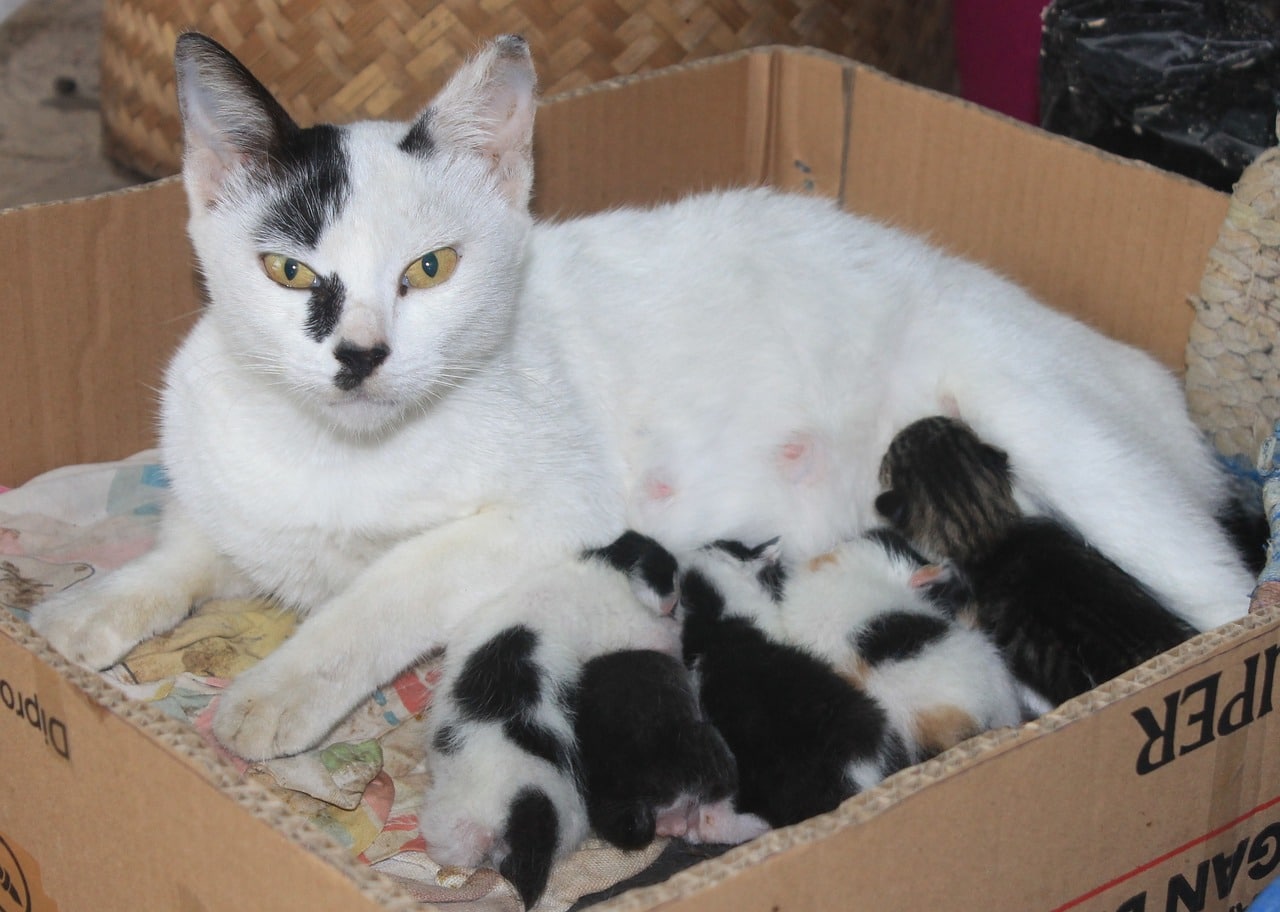
2. Something May Be Wrong With One Kitten
Cats are sensitive creatures, but they are also hardwired for survival. Sometimes, a cat senses that there is something wrong with one of her kittens, even if that’s something we can’t see. Some kittens may have an underlying health condition, and in this case, a mother cat may remove that kitten from the nest and focus her attention on the remaining, healthy kittens. It might seem like a harsh decision, but this is a throwback to your cat’s instincts to survive in the wild.
In the wild, a poorly kitten that becomes seriously sick may attract predators, and that puts the mother cat and the rest of her litter in grave danger too.
If you see your mother cat has moved just one kitten and makes no attempt to create a new nest or move any other kittens, there could be something wrong with that one kitten. You can try gently placing them back in the nest and wait to see what happens.
You should also book a vet exam to start figuring out if there’s an underlying health condition affecting that kitten. If the mother cat continually removes the kitten and won’t allow them to nurse, you can bottle feed the baby and raise them as an orphan. Kittens need feeding at regular intervals, and you’ll need to keep them warm and dry. Ask your vet for advice on how to care for an orphan kitten. This scenario usually occurs within 24 hours of your cat giving birth, so keep a close eye on her from a distance.
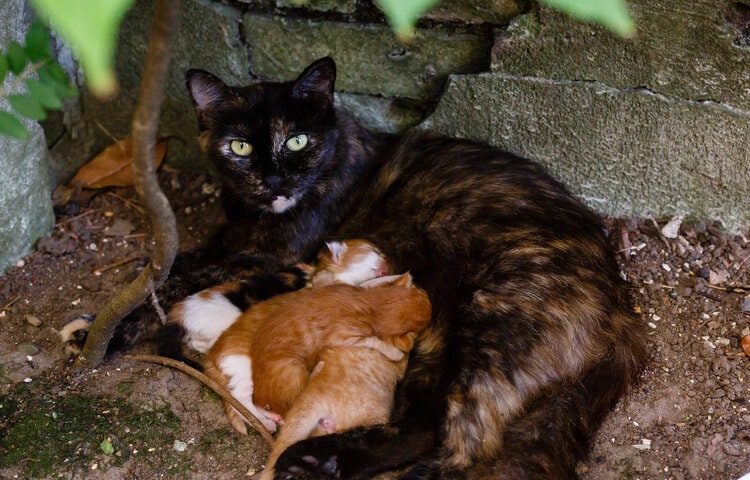
3. She Is Confused and Disoriented
Labor is hard work! Some cats will cope with it better than others. Some mother cats can appear confused and disoriented after giving birth. She may behave in strange ways, including moving kittens to places that you wouldn’t expect and then possibly forgetting about them.
In this case, retrieve the misplaced kitten and put them in the nest. Keep a close eye on your cat, and call your vet to explain how she’s acting.
4. She May Have Too Many Kittens to Care For
Some cats have larger litters than they can realistically take care of. In this situation, your cat may decide to remove one of the weakest kittens from the nest, to concentrate her energies on the others. This is rare, but not unheard of.
If your cat has had an unusually large litter and makes attempts to remove one kitten from the nest, she’s following her ingrained survival instincts. You may be able to persuade her to keep the kitten in the nest and give supplementary milk replacement powder to help all kittens grow up big and strong.
If she rejects the kitten again, this is another scenario where you can hand-raise the kitten on milk replacement powder alone.
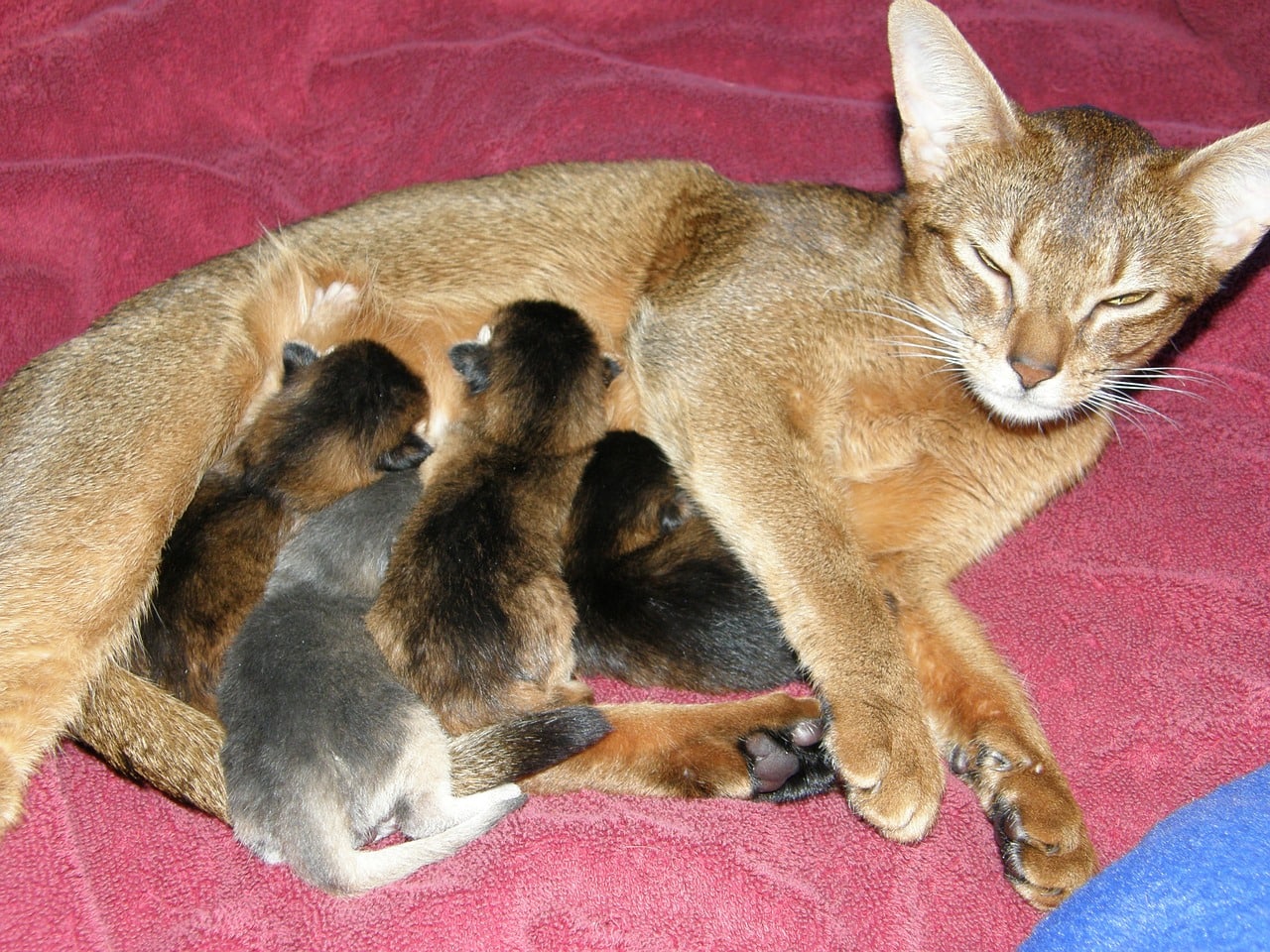

What Should You Do With the Kitten That’s Been Removed?
If your cat has removed one kitten, what’s your next step? The first thing to do is to place the kitten back in the nest with their littermates. Keep a close eye on the mother cat to see if she tries to remove them again.
If she does, keep the kitten warm and dry in the meantime. Call your vet for advice as soon as possible, as newborn kittens need milk every 3 to 4 hours. Your vet may ask for more information, request that you come in with the kitten for a physical exam, or give you advice on how to raise the kitten as an orphan.
With care and attention from their human owners, most orphan kittens thrive and go on to grow into lively juveniles with plenty of energy! Keeping a close eye on your cat and her kittens means you’re well placed to offer help if needed. A mother cat removing a kitten from her nest is a rare occurrence, but knowing how to cope with it if it does happen is the best way that you can support your feline and her new babies.
See also:
- Why Do Mother Cats (Sometimes) Eat Their Kittens?
- Do Cats Miss Their Kittens? Feline Maternity Explained
Featured Image Credit: Lightcube, Shutterstock

